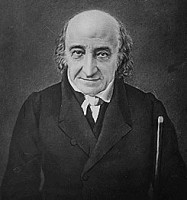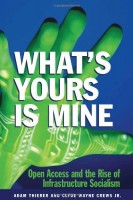 On this week’s episode of the podcast, Adrian Johns, professor in the Department of History at the University of Chicago, expert on the history of science and the history of the book, and author of the new book, Piracy: The Intellectual Property Wars from Guttenberg to Gates, discusses the history of intellectual property and piracy. He discusses origins of copyright law in London, the first pirates, and today’s digital piracy. He also addresses the future of books and potential tipping points that could prompt changes in copyright law, citing the Google Books project and pharmaceuticals in the developing world.
On this week’s episode of the podcast, Adrian Johns, professor in the Department of History at the University of Chicago, expert on the history of science and the history of the book, and author of the new book, Piracy: The Intellectual Property Wars from Guttenberg to Gates, discusses the history of intellectual property and piracy. He discusses origins of copyright law in London, the first pirates, and today’s digital piracy. He also addresses the future of books and potential tipping points that could prompt changes in copyright law, citing the Google Books project and pharmaceuticals in the developing world.- Piracy: The Intellectual Property Wars from Guttenberg to Gates by Adrian Johns
- Yo, Ho, Ho, and a Digital Scrum, review of Piracy by The Chronicle of Higher Education
- Piracy as a business force by Adrian Johns
Do check out the interview, and consider subscribing to the show on iTunes. Past guests have included Clay Shirky on cognitive surplus, Nick Carr on what the internet is doing to our brains, Gina Trapani and Anil Dash on crowdsourcing, James Grimmelman on online harassment and the Google Books case, Michael Geist on ACTA, Tom Hazlett on spectrum reform, and Tyler Cowen on just about everything.
So what are you waiting for? Subscribe!





 The Technology Liberation Front is the tech policy blog dedicated to keeping politicians' hands off the 'net and everything else related to technology.
The Technology Liberation Front is the tech policy blog dedicated to keeping politicians' hands off the 'net and everything else related to technology.